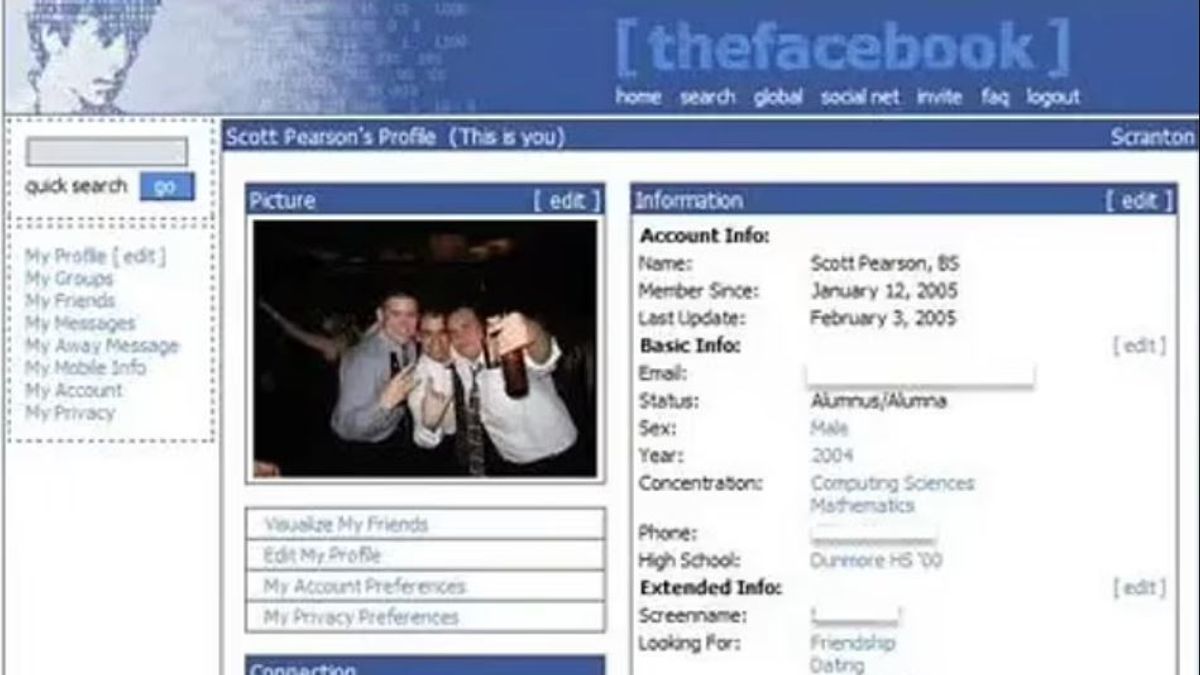JAKARTA - On Sunday 4 February, Facebook, a world-changing social media giant, turned 20 years old. In those two decades, Facebook founder Mark Zuckerberg has changed from a awkward young college boy to a billionaire figure in Silicon Valley who is known to many people.
Facebook, or The Facebook, as it was known at the time, was founded on February 4, 2004 by Mark Zuckerberg and his college roommates. The site was originally intended to replace the book 'Facebook' which contains profiles of students and lecturers at Harvard.
However, the original version of this site looks much simpler than the current modern version. At the time of launch, there was no Newsfeed, timeline, wall or status update, and only one profile photo.
In 2006, when Facebook was first opened to the public, the site added a Newsfeed feature that became one of its characteristics. This is an important step that makes Facebook more than just a collection of profiles and groups.
Apart from Newsfeed, another classic feature of Facebook's early era is the 'poke' button. While deemed useless, this 'poke' button became popular among users, used for 'poke war' with friends or as a subtle way to express interest in someone.
SEE ALSO:
Over the past two decades, Facebook has undergone many changes and developments. From the launch of Facebook Chat in 2008 to the introduction of the Timeline feature in 2011, Facebook continues to evolve to meet user needs and desires as well as to stay competitive with its competitors.
However, behind all these changes, Facebook is also facing criticism over its algorithms allegedly promoting harmful content and sparking controversy over social privacy and impacts from social media. Amid Facebook's growth and evolution over the past 20 years, the company also has to face growing challenges in ensuring a safe and positive user experience.
Along with Facebook's 20th anniversary, the company is faced with calls to take bigger steps to address issues related to security, privacy, and social impacts from its platform. By continuing to strive to overcome these challenges, Facebook hopes to remain an important part of global society's digital life in the coming decade.
The English, Chinese, Japanese, Arabic, and French versions are automatically generated by the AI. So there may still be inaccuracies in translating, please always see Indonesian as our main language. (system supported by DigitalSiber.id)


















